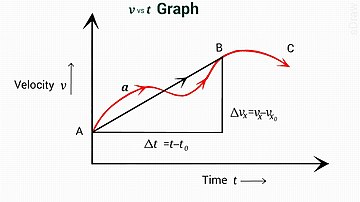
| Part of a series on |
| Classical mechanics |
|---|
In physics, equations of motion are equations that describe the behavior of a physical system in terms of its motion as a function of time.[1] More specifically, the equations of motion describe the behavior of a physical system as a set of mathematical functions in terms of dynamic variables. These variables are usually spatial coordinates and time, but may include momentum components. The most general choice are generalized coordinates which can be any convenient variables characteristic of the physical system.[2] The functions are defined in a Euclidean space in classical mechanics, but are replaced by curved spaces in relativity. If the dynamics of a system is known, the equations are the solutions for the differential equations describing the motion of the dynamics.
- ^ R.G. Lerner; George L. Trigg (1991). Encyclopedia of Physics (second ed.). New York: VCH Publishers. ISBN 0-89573-752-3. OCLC 20853637.
- ^ Hand, Louis N.; Janet D. Finch (1998). Analytical Mechanics. Cambridge: Cambridge University Press. ISBN 978-0-521-57572-0. OCLC 37903527.



